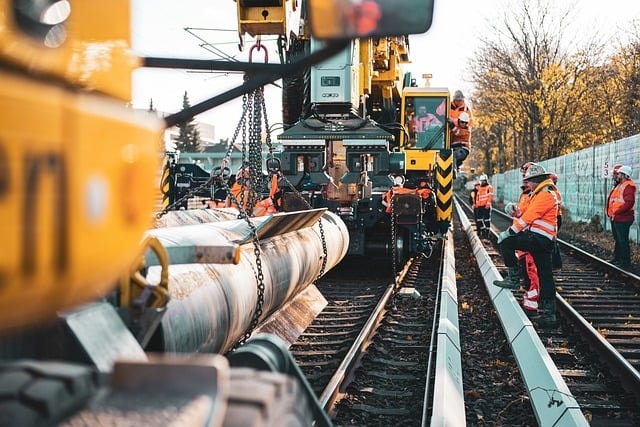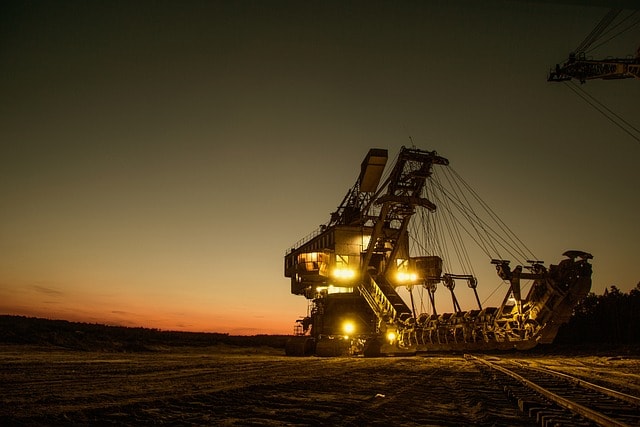The role of a construction project manager is vital in the construction industry, as they oversee the planning, coordination, and execution of construction projects. A construction project manager requires a diverse skill set, including leadership, communication, and technical knowledge. These professionals are responsible for managing the entire project from start to finish, ensuring that all tasks are completed on time, within budget, and to the required quality standards.
Key responsibilities in construction project management
Construction project managers are tasked with a wide range of responsibilities. They are involved in the initial project initiation phase, where they work closely with project owners and other construction specialists to define project goals and requirements. This phase includes the creation of a detailed project plan, outlining the scope, schedule, and budget.

As the project progresses, construction project managers oversee the execution phase, ensuring that all construction activities align with the project plan. This involves coordinating with general contractors, subcontractors, and construction workers, as well as managing the project team. Effective communication skills are essential for construction project managers, as they must regularly update stakeholders on the project’s progress and any potential issues.
Project planning and scheduling
Project planning and scheduling are critical components of construction project management. A construction project manager must develop a comprehensive project schedule that outlines all the tasks and milestones. This schedule serves as a roadmap for the construction process, helping to ensure that the project stays on track.

The work breakdown structure (WBS) is a key tool used in project planning. It breaks down the project into smaller, more manageable tasks, making it easier to allocate resources and manage time effectively. Construction project managers also use cost estimates to plan the budget and control costs throughout the project.
Leadership and team management
Leadership skills are crucial for construction project managers. They must be able to lead a diverse team of professionals, including civil engineers, construction workers, and other specialists. Effective leadership involves not only managing the team’s performance but also fostering a positive and productive work environment.
Construction project managers must also be adept at resource allocation, ensuring that the right resources are available at the right time. This includes managing labor, materials, and equipment. In larger projects, construction managers may work with senior project managers to oversee multiple projects simultaneously.
Ensuring quality and compliance
Quality control is another critical aspect of construction project management. Construction project managers must ensure that all work meets the required quality standards and adheres to building codes and regulations. This involves regular inspections and assessments of the work being done on the job site.

In addition to quality control, construction project managers must also manage the project’s risk. This includes identifying potential risks early on and developing mitigation strategies. A successful project is one that not only meets its objectives but also minimizes any potential issues or delays.
The importance of industry knowledge and certifications
To excel in construction project management, professionals must have a deep understanding of the construction industry. This includes knowledge of construction methods, construction processes, and the latest construction technology. Many construction project managers hold certifications, such as the Certified Construction Manager (CCM) or the Certified Professional Constructor (CPC), which demonstrate their expertise and commitment to the field.
Passing construction exams and obtaining these certifications can be challenging, but they are essential for career advancement. These credentials not only enhance a construction project manager’s skills but also increase their job prospects and potential for higher earnings.
The Future of Construction Project Management
The construction industry is constantly evolving, with new technologies and methods emerging regularly. This means that construction project managers must continuously update their skills and knowledge to stay competitive.

The job outlook for construction project managers is positive, with strong job growth expected in the coming years.
Large construction firms and smaller construction firms alike are always on the lookout for qualified professionals who can lead their projects to success. As the demand for infrastructure projects and other construction projects grows, so does the need for skilled construction project managers.
Key Statistics
Employment Growth for Construction Project Managers
The U.S. Bureau of Labor Statistics projects a 10% growth in employment for construction project managers from 2020 to 2030, which is faster than the average for all occupations. This positive job outlook reflects the increasing demand for skilled professionals in the construction industry as the number of construction projects continues to rise.
Construction Projects and GDP Contribution
The construction industry contributes approximately 4.1% to the U.S. GDP, showcasing its significance to the national economy. Construction projects are a major driver of economic growth, and project managers play a crucial role in ensuring these projects are completed efficiently.
Project Delays and Cost Overruns
According to a report by McKinsey & Company, large construction projects typically take 20% longer to finish than scheduled and are up to 80% over budget. Effective project management and quality control are essential to mitigate these issues and improve project outcomes.
Certification Impact on Salary
Construction project managers with certifications, such as Certified Construction Manager (CCM), earn on average 10-15% more than their uncertified counterparts. This highlights the value of industry knowledge and credentials in enhancing career prospects and earning potential.

General Contractors and Construction Firms
In 2023, there were over 3.6 million general contractors and construction firms in the United States, illustrating the scale of the industry. Construction project managers often collaborate with these entities to streamline the construction process and ensure projects meet the expectations of the project owner.
Technology Adoption in Construction PM
A study by Dodge Data & Analytics found that 77% of construction project managers are now using digital project management tools. The adoption of construction pm technology helps in better resource allocation, project tracking, and enhances overall project efficiency. In projects that involve industrial piping or mechanical systems, integrating pipe fabrication software can significantly streamline the planning and installation process, reduce material waste, and improve coordination between design and field teams.
These statistics underscore the importance of skilled project managers in the construction industry, emphasizing the need for effective project management and quality control to navigate the complexities of the construction process. They also highlight the growing reliance on technology and the value of industry knowledge in achieving successful project outcomes.
The Path to Becoming a Construction Project Manager
Becoming a construction project manager typically requires a combination of education, experience, and certifications. Many professionals start their careers in a construction-related field, gaining on-the-job training and experience.
This experience is invaluable, as it provides a practical understanding of the construction process and the various challenges that can arise.
In addition to practical experience, aspiring construction project managers often pursue formal education in construction management or a related field. This can include earning a degree in construction management, engineering, or business.
Advanced degrees and specialized training can further enhance a construction project manager’s skills and qualifications.
Myth Busting about Construction Management
In the world of construction project management, several myths persist, often leading to misconceptions about the role and responsibilities of construction project managers. Here, we bust three common myths and clarify the realities of this essential field.
Myth 1: Construction project managers only oversee construction sites.
Many people believe that construction project managers spend all their time on construction sites. However, their role is much broader. They are involved in every phase of a construction project, from initial planning and the bidding process to project execution and final project control.

They work closely with the project owner, general contractor, and construction professionals to ensure the project’s schedule and quality control standards are met.
Myth 2: Most construction managers are general contractors.
While construction project managers and general contractors both play crucial roles in the construction process, they are distinct positions. General contractors focus primarily on the hands-on aspects of construction, while construction project managers handle the project’s overall management, including project schedule, budgeting, and coordinating with various stakeholders. They use advanced management techniques to oversee multiple aspects of the construction process.
Myth 3: A single project manager can handle all aspects of construction projects.
Another misconception is that a single project manager can manage all aspects of a construction project. In reality, construction projects often require a team of specialized managers, including senior project managers, construction PMs, and quality control experts.

This team collaborates to handle the many tasks involved, such as project planning, managing construction phases, and ensuring that construction plans are executed correctly. This collaborative approach is crucial for project success and navigating the complexities of modern construction projects.
Expert Comment
John Mitchell, a renowned expert in construction management and a senior project manager at Elite Build Solutions, shares his insights on the complexities of managing a construction site and the evolving demands of the industry. As a longtime member of the Construction Management Association, John has overseen numerous high-profile projects and contributed to setting industry standards.
“Managing a construction site is a multifaceted challenge that requires a blend of technical knowledge and practical experience. The construction phase is particularly critical, as it involves coordinating so many tasks, from material procurement to workforce management. As construction PMs, we must stay vigilant, ensuring that every aspect aligns with the project’s goals.

Labor statistics indicate a growing need for skilled professionals, making it crucial for construction firms to hire candidates with robust construction experience and strong problem-solving abilities. Passing a technical exam is just the beginning; real-world construction experience is invaluable. In this industry, we often encounter unique challenges, and it’s the seasoned professionals who can navigate these complexities and deliver successful outcomes.
The construction portion of a project is where the vision materializes, and it requires a collaborative effort from all stakeholders. For those aspiring to advance in this field, joining professional organizations like the Construction Management Association can provide valuable resources and networking opportunities, helping them stay current with industry trends and best practices.”
Trend Watch: Emerging Trends in Construction Project Management
1. Rise of Integrated Project Delivery (IPD)
Integrated Project Delivery (IPD) is becoming a popular approach in the construction industry, focusing on collaborative project management. Unlike traditional methods, IPD involves the construction project manager, project owner, general contractor, and other key stakeholders working together from the project’s inception.
This approach enhances communication, reduces conflicts, and leads to more efficient construction processes. For construction firms, the adoption of IPD can significantly improve project outcomes, as it aligns all parties towards common goals and enhances overall project quality.
2. Increased Emphasis on Sustainability and Green Building
The construction industry is increasingly prioritizing sustainability and green building practices. Construction project managers are now tasked with integrating eco-friendly materials and energy-efficient systems into projects. This trend is driven by growing environmental concerns and stricter regulations, as well as a market demand for sustainable buildings.

Implementing green building practices not only benefits the environment but also reduces long-term costs for project owners through energy savings and improved building performance.
3. Advancements in Construction Technology and Automation
Technology is rapidly transforming construction project management, with advancements like drones, 3D printing, and robotics playing pivotal roles. Drones are used for site surveys and progress monitoring, while 3D printing is revolutionizing the way construction components are produced.
Robotics and automation are streamlining construction processes, making them faster and more accurate. These technologies are helping construction project managers enhance quality control and adhere to project schedules, thus improving overall project efficiency.
4. Focus on Safety and Risk Management
As the complexity of construction projects increases, so does the emphasis on safety and risk management. Construction project managers are implementing more robust safety protocols and utilizing technology to minimize risks on construction sites.
The use of predictive analytics and real-time data monitoring helps identify potential hazards early in the construction process. Ensuring a safe work environment not only protects workers but also reduces liability for construction firms and helps maintain project schedules by minimizing downtime due to accidents.
These trends highlight the evolving landscape of construction project management, with a growing focus on collaboration, sustainability, technology, and safety. As the industry continues to innovate, construction project managers will need to stay abreast of these developments to successfully lead projects and meet the demands of modern construction.
Conclusion: The Essential Role of Construction Project Managers
In conclusion, construction project managers play a critical role in the success of construction projects. They are responsible for overseeing all aspects of the project, from planning and scheduling to execution and quality control in construction pm.
Their leadership and industry knowledge are essential for navigating the complexities of the construction process and ensuring that projects are completed on time, within budget, and to the highest standards of each construction firm.
As the construction industry continues to grow and evolve, the demand for skilled construction project managers will only increase. For those interested in pursuing a career in this field, the opportunities are vast and rewarding. Whether working on large infrastructure projects or smaller construction projects, construction project managers are at the forefront of building the future.
Key Takeaways
- Construction project managers oversee the planning, coordination, and execution of construction projects.
- Effective communication and leadership skills are essential for managing project teams and stakeholders.
- Project planning includes developing a detailed schedule and budget, using tools like the work breakdown structure.
- Quality control and compliance with building codes are critical responsibilities of construction project managers.
- Certifications such as Certified Construction Manager (CCM) and Certified Professional Constructor (CPC) enhance career prospects.
- Industry knowledge and staying updated with the latest construction technologies are vital for success.
- Risk management involves identifying potential issues early and developing mitigation strategies.
- Construction project managers work closely with general contractors, subcontractors, and other specialists.
- The job outlook for construction project managers is strong, with growing demand in the construction industry.
- Gaining practical experience and formal education in construction management or related fields are key steps to entering the profession.
Conclusion
Construction project managers are essential to the successful completion of construction projects, ensuring they are delivered on time, within budget, and to the required quality standards. Their role requires a blend of leadership, technical knowledge, and practical experience. With a positive job outlook and numerous opportunities for career growth, becoming a construction project manager is a rewarding path for those interested in the construction industry. Now it’s your turn!
FAQ
What is a construction project manager?
A construction project manager is a professional responsible for overseeing the planning, execution, and completion of construction projects, ensuring they meet specific goals and standards.
What is the role of a construction manager in a project?
A construction manager’s role includes managing the overall construction process, coordinating with various stakeholders, ensuring compliance with regulations, and maintaining project quality and safety.
Is a construction manager higher than a project manager?
In some cases, a construction manager may have a broader scope of responsibilities, overseeing multiple projects or focusing on the technical aspects, while a project manager typically focuses on the management and administrative aspects of a specific project.
What is the work of construction project management?
Construction project management involves planning, coordinating, and overseeing the various phases of a construction project, from initial planning and budgeting to execution and completion, ensuring that all objectives are met efficiently and effectively.
